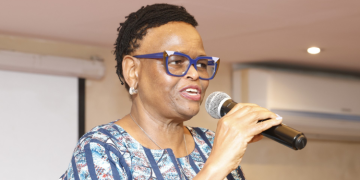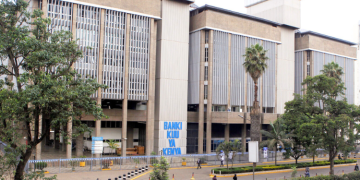Chief Justice Martha Koome has called for stronger, socially grounded approaches to family justice, urging for reforms that recognise the lived realities of Kenyan families affected by unregistered customary marriages under the Marriage Act, 2014.
CJ Koome called for the reforms on Friday, November 28, during the Milimani Family Division’s inaugural Inns of Court Conference held in Nairobi.
In her keynote address themed “The Marriage Act 2014: Effects of Unregistered Customary Marriages in Family Disputes”, the head of the Supreme Court commended the Milimani Family Division, Judges, and the Bar–Bench Committee for pioneering an innovative forum for jurisprudential dialogue. She called on the Kenya Judiciary Academy to replicate the model across other divisions of the High Court.
Reflecting on Kenya’s journey in family justice, the Chief Justice noted that family disputes were once handled as ordinary civil cases, often before judicial officers without specialised training in the psychosocial complexities of custody, domestic violence,
She lauded the establishment of the Family Division in 2000, noting that it marked a critical shift toward a jurisprudence that heals and protects vulnerable persons.
Also Read: Court Maintains Equality in Marriage Depends on Contribution, Not 50:50 Split
The Chief Justice, at the same time, highlighted achievements under the Social Transformation through Access to Justice (STAJ) framework, including the establishment of the first dedicated Magistrates’ Family Court in 2023. The Court has significantly enhanced access and efficiency, handling nearly 6,000 filings in 2024 alone and finalising over 3,000.
Koome seeks justice for Kenyans in unregistered customary marriages
The head of the Supreme Court underscored the essential role of specialised family courts in addressing domestic violence, child protection, and gender-based vulnerabilities through trauma-informed processes and coordination with social services.
The Chief Justice further noted that the challenges posed by unregistered customary marriages are real and far-reaching. She cited cases of widows denied inheritance and children whose identity and security are jeopardised due to a lack of formal marriage registration. In addition, she observed that while the Marriage Act, 2014 harmonised Kenya’s diverse marriage systems, its six-month registration requirement, often clashes with cultural practices, geographical barriers, poverty, and limited public awareness.
“A rigid insistence on formal registration risks marginalising the very people the law intended to protect,” she said, calling for a contextual, socially just approach to implementing the Act.
The Chief Justice reaffirmed the importance of Bar–Bench Committees and Court Users Committees (CUCs) in maintaining responsive justice systems and encouraged greater collaboration.
She also emphasised the Judiciary’s commitment to multi-door justice, citing the success of Court-Annexed Mediation and the potential of the Alternative Justice Systems (AJS) framework in resolving family disputes efficiently and respectfully.
Justice Koome reminded participants that behind each family file lies a human story. She urged continued commitment to compassionate, timely, and accessible justice for all Kenyan families, pledging her full support for ongoing reforms.
Marriage Act, 2014
Topics discussed during the conference included the background and key features of the Marriage Act, 2014, as well as constitutional concerns regarding marriages that are neither registered nor recognized. Speakers compared how marriage registration is handled in other countries and shared perspectives from magistrates and judges.
The panelists, comprising members of the Family Division’s bar and bench, undertook a detailed examination of Supreme Court rulings on customary marriages.
They analysed the impact of non-recognition on succession and matrimonial property rights, while also reflecting on the broader challenges and opportunities associated with implementing marriage registration.
Also Read: Court of Appeal Scraps Three-Year Waiting Period for Divorce in Kenya
The discussions also assessed the progress achieved since the enactment of the Marriage Act and identified persisting gaps within family law.
The Marriage Act of 2014 is a Kenyan law that consolidates and modernizes marriage laws, recognizing several types of marriages, including civil, Christian, customary, Hindu, and Islamic.
Key provisions include a definition of marriage as a voluntary union of a man and a woman (monogamous or polygamous), mandatory registration for all recognized marriages, and detailed procedures for divorce and child custody.
The Act establishes the legal framework for marriage and divorce while also protecting the rights of spouses and children.
Follow our WhatsApp Channel and X Account for real-time news updates.











































































